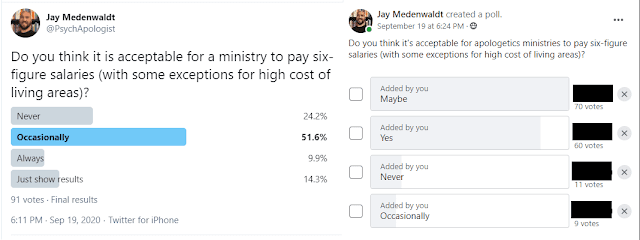
by Jay Medenwaldt | Sep 20, 2020 | Apologetics, Theology
1Now listen, you rich people, weep and wail because of the misery that is coming on you. 2Your wealth has rotted, and moths have eaten your clothes. 3Your gold and silver are corroded. Their corrosion will testify against you and eat your flesh like fire....

by Jay Medenwaldt | Sep 13, 2020 | Apologetics, Evangelism, Psychological Apologetics
It’s been a while since I’ve written a classical apologetics article that gives evidence for Christianity so I thought I’d get back into it, but with a little twist. Rather than just present arguments and explain the reasons why I believe...




